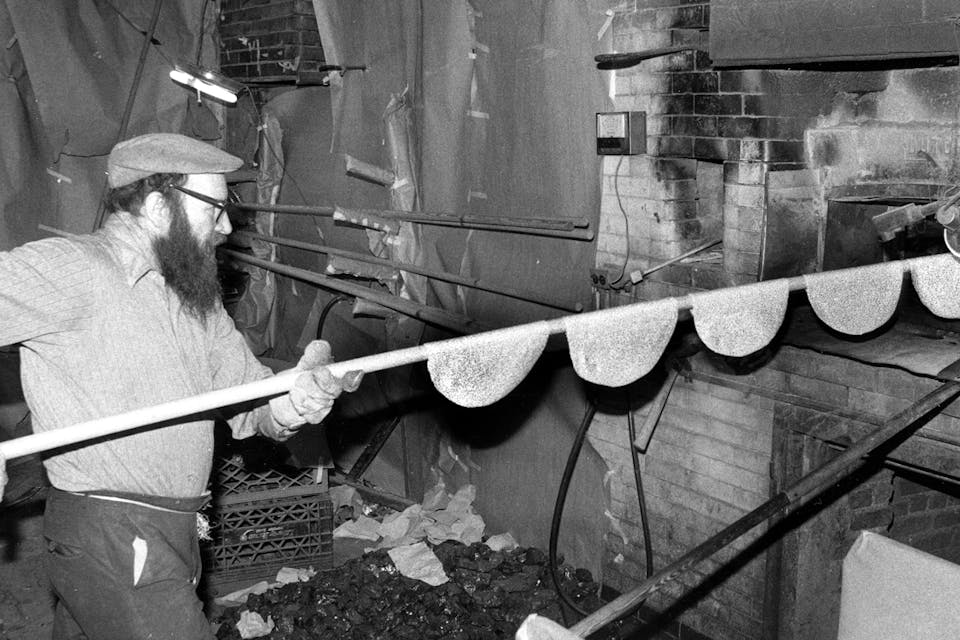
April 28, 2016
The Soviet Jews Who Risked Persecution for the Sake of Matzah
Lugging suitcases or large woven bags—anything big enough to hold a carton of matzah without raising suspicion—tens of thousands made their way to underground bakeries.
They came from all over Moscow. In the 1950s and 60s, beginning about a month before Passover each year, they’d get on an elektrichika streetcar and travel an hour or more to the Bolshevo station on the outskirts of the city, lugging suitcases or large woven bags—anything big enough to hold a carton of matzah without raising the suspicion of informers or the official enforcers of Soviet anti-Jewish oppression. Of those who came more or less surreptitiously to the Bolshevo home of Aharon Chazan, some purchased his round handmade shmurah matzah, others the square and less expensive hand-cranked “machine” kind.
And just as the Chazans were not alone as producers, so their patrons were not alone as consumers. To the contrary: despite all the obstacles thrown up by the regime, and whether it was baked in one’s own oven, procured from the Chazans’ home enterprise or others of a similarly illegal kind, or in lenient years from state or quasi-legal synagogue bakeries, for tens if not hundreds of thousands of Soviet Jews, matzah on Passover was a not-to-be-breached imperative.
“They weren’t only religious Jews who came to our house to buy matzah,” stresses Chazan’s daughter, the seventy-eight-year-old Devorah Greenberg. “Everybody looked for it. They’d ask each other, ‘Do you know where I could find some? I want to buy.’ That’s how they heard about my father’s matzah; it was all word of mouth.”